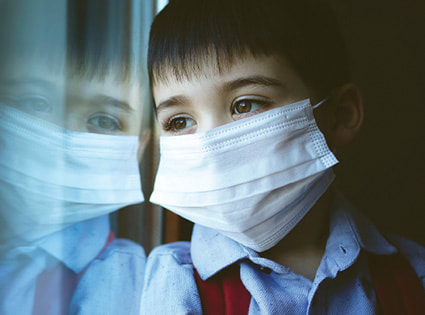“Covid Orphans”
Some 200,000 U.S. Children, nearly 400 from Alaska, are “Covid Orphans,” having lost parents, grandparents or caregivers. Most are african american, hispanic or Alaska native, and their numbers are growing.Research from the Department of Mathematics in the School of Natural Sciences at Imperial College London (England) and the U.S. Centers for Disease Control and Prevention (CDC) estimated that as of June 2021 more than 120,000 American children, nearly 400 in Alaska, had lost their father, mother, a grandparent, or primary caregiver to Covid. The study was published in October by the journal Pediatrics, of the American Academy of Pediatrics. But it was later rectified with new data.
This new data led the researchers to rectify their initial figure of 120,000 “orphans” to 175,000 children who had lost their caregiver due to Covid. Those estimates referred only to the first three waves of the pandemic. But there have been three more waves, and each wave has resulted in more deaths of people with children in their care. With the sixth wave, the Omicron wave, these Covid “orphans” to date are estimated at 200,000 children, but their numbers continue to rise. Blacks and Hispanics The research was conducted by Dr. Alexandra Blenkinsop of the Department of Mathematics in the School of Natural Sciences at Imperial College London (England), in collaboration with Dr. Susan Hillis of the CDC, and more than a dozen other specialists. We spoke with Alexandra Blenkinsop from London. – More than half of these children are black or Hispanic. Are they more vulnerable? Yes. The risk is 2.4 times higher in African Americans and 1.8 times higher in Hispanics compared to non-Hispanic whites. Fertility rates and multigenerational households differ in these groups, and each death may affect them more. Incidence and mortality are higher. These minorities have jobs that expose them more to Covid and their access to healthcare is lower, so outcomes are worse. – The study was published in October, is there updated data? Not yet, but the sixth wave (Omicron) is expected to have increased the “orphans” to 175,000 by the end of 2021. Please Note: Dr. Blenkinsop made these statements to us on December 27, 2021. The number of deaths from Omicron has increased since then, and will continue to increase even more according to researchers. Because of this, it is very likely that the most current figure of “Covid orphans” has already reached 200,000 children. Alaska – Is there data from Alaska? Yes, as of June 30, 2021, we estimate that 170 Alaskan children lost a primary caregiver and another 191 lost a primary or secondary caregiver (361 total). That is; one in every 1,000 children in Alaska lost a caregiver. We estimate that about 95 of these children were Alaska Native, representing 56%. The contrast with non-Hispanic white children who lost a caregiver is large, is less than fifteen. – So, what to do? Ensure equitable access to vaccines and allocate funds to programs sensitive to racial disparities and inequities. |
